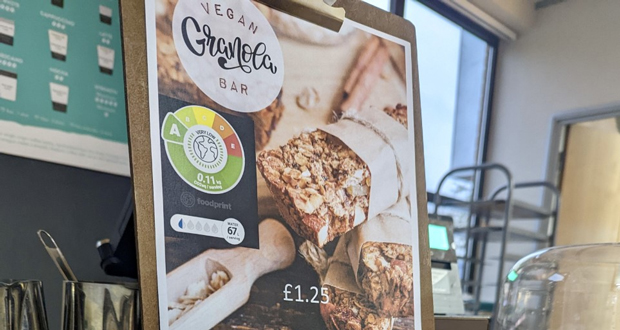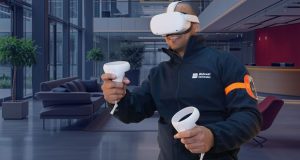Workplace catering firm, BM, has become one of the first contract caterers in the UK to roll out carbon labelling across its business and industry sites.
Partnering with Nutritics, which provides the group’s nutritional software, the company now offers its team an automated carbon footprint scoring system which helps produce carbon labels for its menus.
‘FoodPrint’ will allow BM to generate a ‘carbon badge’ for each recipe that can be added onto menus, similar to nutritional traffic light labels on food packaging.
Nutritics obtains carbon footprint data using data from suppliers if available and secondary data such as industry averages.
The scoring system will account for the entire process of getting food from farm to plate, including the greenhouse gas emissions produced by growing, rearing, farming, processing, transporting.
According to Nutritics research, 49 per cent of people consider sustainability when purchasing food or drink, while 42 per cent would choose a venue because its signage displayed a commitment to reducing CO2 emissions.
Sally Grimes, Quality Standards Manager, at BM said: “Foodprint provides us with a reliable Scope 3 ESG reporting and carbon labelling system. Having this information empowers us as a business to make more informed decisions to help reduce our carbon footprint, but also allows our customers to see our sustainability journey, understand the impact of their food choices on the environment and make informed decisions themselves.”
According to Pitney Bowes Parcel Shipping Index, worldwide parcel volume is likely to double in the next five years, with the UK showing the highest increase in carrier revenue of all 13 countries in the Index.
Alongside a huge uptake in the volume of parcel volume and spend, post pandemic, the adoption of hybrid working patterns means that FMs need to find ways to enable staff to book / host collaborative meetings in available workspaces and to find desk, office and parking spaces by utilising automation and data capture to enable site governance.
Yet a recent survey by FMJ in partnership with Pitney Bowes found that 20 per cent of recipients are still using manual paper-based visitor systems, which doesn’t fit with their top priority – to maintain a safe and operational environment.
This overwhelming reliance on paper-based systems is causing many respondents bottlenecks, resulting in a lack of efficiently in logging and tracking packages and people coming into the organisation.
In this webinar, Gary Abbott Director of Business Development and Stuart Bushaway, Head of Dealers Operations and FM Relationships at Pitney Bowes will outline the main findings of the two surveys and what this could mean for FMs. This will be followed by a discussion, chaired by FMJ Editor Sara Bean comprising Wayne Young – Facilities Manager, Just Eat Takeaway.com & Simi Gandhi-Whitaker, Strategic Technology Director, Connected Workspace, Mitie.
Register for the webinar here.





